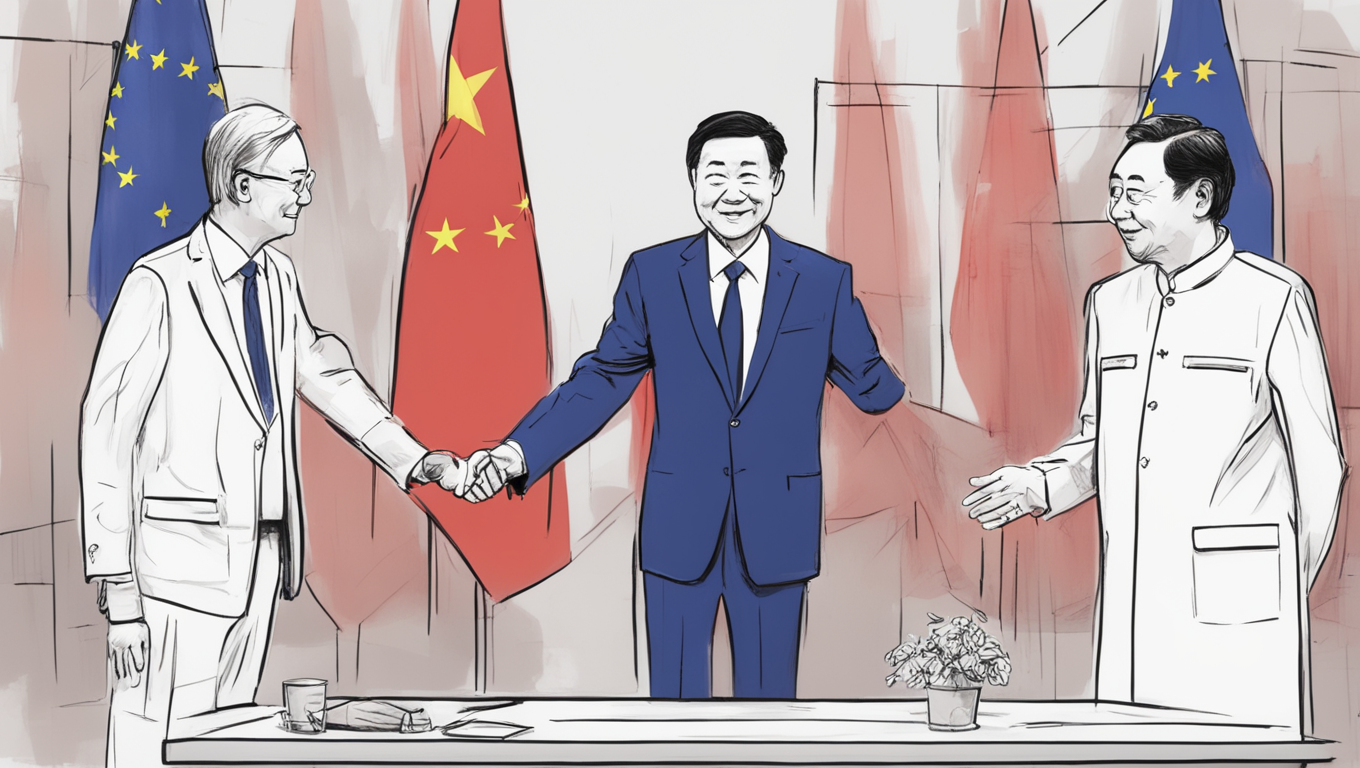EU digital boss Vera Jourova is embarking on a whirlwind trip to China to present the idea of establishing a global governing body for artificial intelligence (AI). This proposal was initially put forth by European Commission President Ursula von der Leyen, who believes that the EU should promote a “global panel that provides the latest science to policymakers.” The envisioned body would be similar to the UN’s Intergovernmental Panel on Climate Change, which focuses on advancing scientific knowledge about climate change caused by human activities.
While there are ideological differences between the EU and China regarding the use of AI by authorities, there is an understanding that it is crucial to involve Beijing in discussions on global governance of AI. A senior EU official explained that while they may disagree on fundamental issues such as surveillance and individual rights, the rapid advancement of technology necessitates discussions on extreme risks and effective methods of global governance.
Developers of advanced AI have highlighted various concerns, including biohazards, cyber risks, and the potential for extinction. In a statement released by the nonprofit Centre for AI Safety, over 350 executives, researchers, and engineers working in AI, including Chinese stakeholders, emphasized the need to prioritize mitigating the risks posed by AI. For example, in an experiment last year, an AI system developed 40,000 potentially lethal molecules in just six hours, raising concerns about the technology falling into the wrong hands for chemical and biological warfare.
During her visit to China, Jourova will engage in a “high-level digital dialogue” with Vice-Premier Zhang Guoqing. She is expected to sign a deal ensuring consumer safety for Chinese products purchased online in Europe. However, there may be more areas of disagreement than agreement during her discussions. Jourova plans to raise the issue of AI technology being used for surveillance purposes on the Uygur community in the Xinjiang region, as highlighted in a contentious UN report last August. She will also meet with the EU Chamber of Commerce in China to address concerns of EU businesses.
As part of her itinerary, Jourova will visit the Institute for AI International Governance at Tsinghua University. Her trip is just one in a series by top EU officials leading up to a summit anticipated to take place in November. Valdis Dombrovskis, the EU’s trade commissioner, will travel to China the week after Jourova to discuss Brussels' investigation into subsidies for Chinese-made electric vehicles. Additionally, top EU diplomat Josep Borrell is set to visit in October to discuss geopolitical issues with Chinese Foreign Minister Wang Yi.
This ambitious trip to China underscores the EU’s commitment to shaping global governance of AI. By engaging in open dialogue with China, the EU aims to address the risks associated with AI and establish a framework that ensures the responsible and safe development of this transformative technology. While differences may exist, it is through these discussions that progress towards a more secure and equitable AI landscape can be made.





Use the share button below if you liked it.